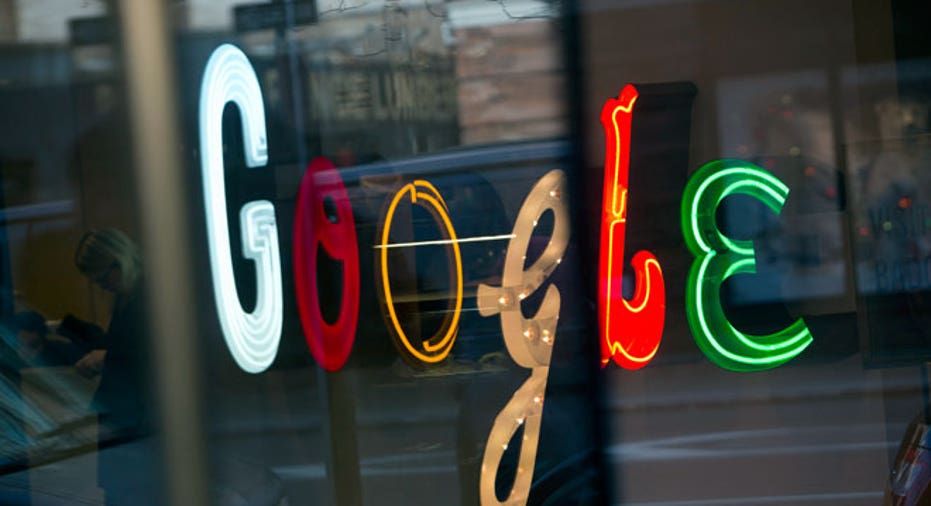Can Tech Save Politics?

When it comes to the tech industry, I don’t know who has a bigger branding problem, the Republican Party or Vanity Fair.
I have no idea how it happened, but over the years the GOP has somehow managed to become persona non grata in the most powerful bastion of capitalism in America: Silicon Valley. And I seriously doubt if Vanity Fair would show up on anyone’s short list of edgy technology publications.
In any case, word must have gotten out to Condé Nast headquarters -- clear across the country -- that Silicon Valley needs yet another tech confab. So, Vanity Fair got right on it and launched its inaugural New Establishment Summit last week in San Francisco with the theme “The Age of Innovation.” How milquetoast can you get?
One panel did get my attention, however: “Why can’t tech save politics?” with Bob Woodward of Watergate fame interviewing Kleiner Perkins VC John Doerr, Google (NASDAQ:GOOGL) Chairman Eric Schmidt and the libertarian-ish Republican U.S. Senator from Kentucky, Rand Paul.
But what should have been a controversial debate turned out to be a Kumbaya-chanting love fest that highlighted just how shockingly insular and out of touch the Silicon Valley elite has become, not to mention the sort of popular group-think that passes for common wisdom these days.
It began with Schmidt explaining the intricate complexities of the high-tech mindset: “Silicon Valley has historically been socially liberal and fiscally conservative and this why politicians have never quite been able to figure out why we end up in the position that we do,” he said.
This is such a bizarre statement I don’t know where to begin. Let’s start with “fiscally conservative." Silicon Valley? You’ve got to be kidding. Is that what you call all the multi-billion dollar startup valuations and out-of-control burn-rates we’re seeing of late?
According to a Wall Street Journal interview with Benchmark Capital’s Bill Gurley, “I think that Silicon Valley as a whole or that the venture-capital community or startup community is taking on an excessive amount of risk right now. Unprecedented since '99,” he said. “No one's fearful, everyone's greedy, and it will eventually end.”
Lest we forget it was Silicon Valley that created the mother of all bubbles during the dot-com era. We practically invented the term. And we’re reinventing it right now as we live, breathe and Snapchat. Remember, the last time the Nasdaq was at these levels the peak was just a month or two away.
And the last time I checked, Silicon Valley is still part of the great state of California, which passed the largest annual budget in state history -- $108 billion -- last summer. Never mind that it’s funded by record revenue from taxes and, yes, a looming stock market bubble. “Fiscally conservative” my petunias.
As for the part about politicians not being able to figure out the combination of socially liberal and fiscally conservative, it’s not exactly rocket science. I guess I was a bit surprised that Paul sat quietly through that characterization. Maybe it did go over his head. Or maybe he’d agree with just about anything the billionaires on the panel had to say.
The Google chairman went on to say, “the simplest solution to most of America’s problems is create more entrepreneurs and do everything you can to get them to be more successful to invent the future.”
Well there you go, the solution to the nation’s problems in a nutshell: More entrepreneurs. More success. More inventing the future. Why not more cowbell?
Then Woodward asked, “So is the solution here to make the federal government into a big giant venture capital firm?”
Amazingly, Paul and Doerr both agreed, with Doerr enthusiastically adding, “What I would like to see is more entrepreneurs. More entrepreneurs everywhere. I’m just in awe of entrepreneurs.”
Here’s the thing. California has among the highest poverty and unemployment rates in the country. This is the state that invented the modern day income gap between the haves and the haven-nots.
The San Francisco Bay Area has enormous wealth concentrated among a small percentage of VCs, founders, executives and key employees, while nobody else can afford to live within 100 miles of the coastline. Southern California isn’t much different. Just substitute Hollywood for high-tech.
This is the place where the American middle class came to die. And the trend has accelerated since the Internet’s transformation to an open-source platform for user collaboration, user-generated content and social networking around the start of the new Millennium ... actually right after the last bubble burst.
As Internet pioneer Jaron Lanier puts it, “[Web 2.0] screws the middle class. Only the aggregator (like Google, for instance) gets rich, while the actual producers of content get poor.” This is the reality of how the Silicon Valley elite would solve America’s problems. Once you peel away the Utopian fluff and entrepreneurial rhetoric, it’s not a very pretty picture.
As for the panel’s question, “Why can’t tech save politics?" -- first it has to save itself.



















